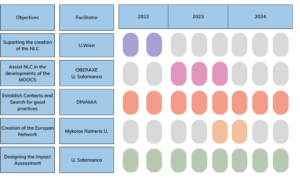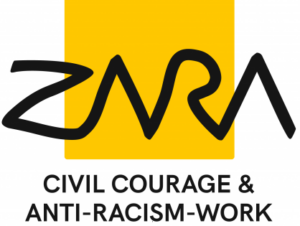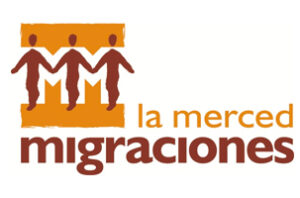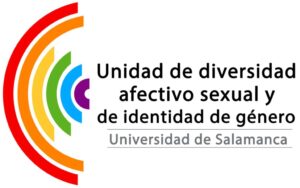Transnational Learning Community
The Transnational Learning Community (TLC) is a space for knowledge generation and acquisition, through training, research and exchange, with the aim of turning European universities into inclusive educational spaces. The TLC can be defined as a transnational community made up of a group of people who share the goal of making European universities inclusive educational spaces and who cooperate to promote the development of qualified university learning communities, respecting the variety of perspectives, by actively promoting learning opportunities that enhance their potential for the creation of new knowledge on inclusion.
The TLC will be comprised of stakeholders belonging to university services and research groups with an interest in inclusion, representatives of the project partner organisations: Cidalia, Mykolas Romeris University, Spanish Observatory on Racism and Xenophobia (Oberaxe), University of Salamanca and Wien University. In addition, NGOs representing vulnerable groups, school education institutions or public institutions with experience in equality and non-discrimination join the project.
The Transnational Learning Community of the HELCI project involves representatives of the following entities:
The Members of the TLC

The Objectives of the TLC
Overall objective: to turn European universities into inclusive and cooperative educational spaces to promote the development of skilled university learning communities.
Specific objectives:
- To support the creation of national learning communities oriented towards the development of inclusive MOOCs.
1.1.- To provide guidelines for the creation of University Learning Communities at national level: structure, objectives and work plans.
1.2.- To provide methodological guidelines for the assessment of the needs of the participating universities through surveys and focus groups.
1.3.- To analyse the results of the needs assessment process.
1.4.- To approve a methodological guide for the development of the MOOCs.
- To assist national learning communities in the development of MOOCs.
2.1.- to propose to the national learning communities contents and resources for the development of MOOCs.
2.2.- to provide assistance to the national learning communities as requested by the national learning communities.
- To establish contacts with educational centres interested in the development of inclusive spaces and the pursuit of good practices.
3.1.- to use the spaces provided by EPALE to establish contacts with other entities and experts and to learn about good practices in the development of training strategies for the development of inclusive spaces.
3.2.- to identify and design strategies to disseminate and establish relationships with non-educational organisations and entities, interested in the subject in different European countries.
3.3.- to use the project’s website to disseminate the activities of the TLC.
- To create a European Network of Inclusive and Non-Discriminatory European Universities.
4.1.- to define the objectives of the Network, its form and structure.
4.2.- to validate the Handbook for Inclusive and Non-Discriminatory Universities and the Roadmap with the participation of three universities from outside the project (one per partner country).
4.3.- to design strategies to maximise the transferability of the products and the adhesion of other universities to the project.
5.- To design the evaluation of the impact of the project’s objectives.
5.1.-to define the instruments and those responsible for the evaluation.
5.2.-to analyse the results of the evaluation.






